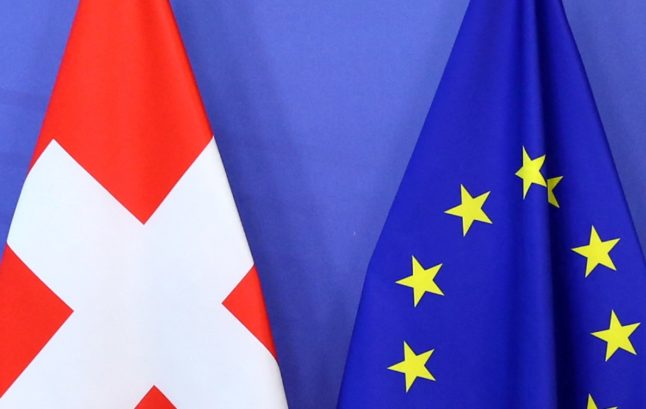The Swiss government said it had given the green light during a closed session Wednesday to “draw up key parameters for a negotiating mandate” with the European Union.
It said in a statement the foreign and justice ministries, along with the ministry of economic affairs, education and research (EAER), had been asked to prepare such parameters by the end of June.
At the same time, “work will continue to clarify common ground with the EU in order to start negotiations”.
Ties between Brussels and Bern have been strained since Switzerland suddenly decided in May 2021 to end years of discussion towards a broad cooperation agreement with the bloc.
EU-Swiss ties are currently governed by a patchwork of agreements, and for more than a decade discussions were ongoing towards an overarching accord that would have harmonised the legal framework governing the relationship.
But the talks hit an impasse after the EU refused to budge on Swiss demands to exclude key issues relating to state aid, wage protections and freedom of movement.
Since then, Switzerland has been trying to pick up the pieces and establish common ground with Brussels through so-called exploratory discussions.
So far, eight rounds of such exploratory talks have been held, with the next such discussions due on April 20, Bern said, adding that technical talks were also taking place on a weekly basis.
“These have led to a detailed understanding of both sides’ positions and possible solutions in the individual dossiers,” it said.
‘Positive momentum’
Following an in-depth domestic and foreign policy assessment, the government said it had noted “positive momentum” in the discussions held at various levels.
“The task now is to work out solutions for the remaining outstanding issues, in order to establish common ground for the preparation of a negotiating mandate,” it said.
The government said it still wanted to see a “package approach” in the negotiations.
Rather than a single agreement regulating institutional issues by for instance requiring the adoption of EU law developments and supervision, it said it preferred seeing the development of a whole package of new specific agreements, focused on things like electricity, food safety and health.
“This approach enables a broad balance of interests and increases the chances of success in any subsequent negotiation,” the statement said.
On the contentious issue of wage protection, the government said it had instructed the EAER to work closely with Switzerland’s 26 cantons and social partners to draw up proposals towards supplementary measures securing current levels of protections on the domestic labour market.
It said the departments responsible had also been instructed to “clarify the outstanding issues relating to electricity, land transport and health”.
State secretary Livia Leu, Switzerland’s chief negotiator with the EU, had been tasked with “finalising the common basis for future negotiations”, it said.




 Please whitelist us to continue reading.
Please whitelist us to continue reading.
Member comments